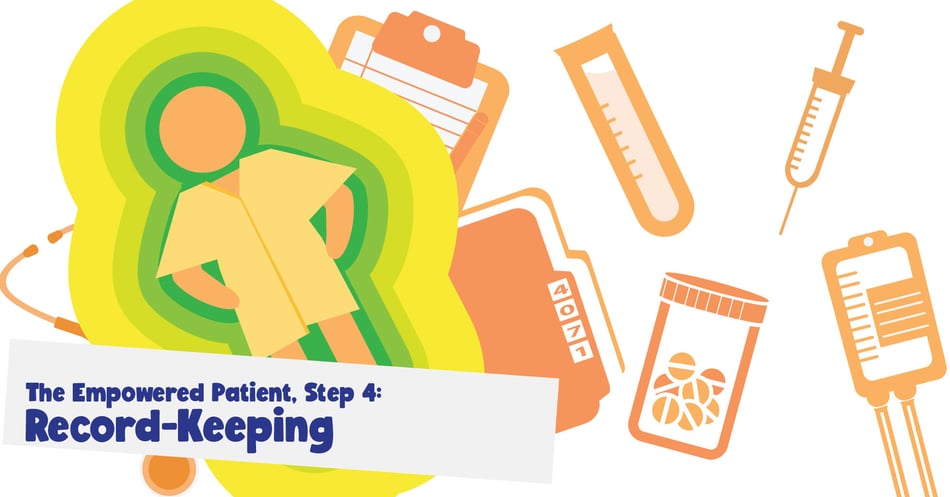The Empowered Patient, Step 4: Record Keeping

This week's topic has suggestions for how to keep track of all the information you are collecting. Whether you like paper-based or digital information storage, keep these ideas in mind to help reign in the sometimes overwhelming amount of data.
Step 4: Record-Keeping!
One of the most important things you can do as a patient or patient advocate is to keep notes. Write down symptoms, questions, and any information you may want to share with your caregiver. It is easy to think in the moment that you will remember what is said and remember what you want to ask and even remember all the information about your recent symptoms so you can answer the doctor’s questions.The truth is, however, that the visits and the concern are more stressful than we may know and it is very difficult to remember all that you need to remember. Here are some helpful tips to get you started.
If you are encountering a long-term or potentially chronic situation, dedicate one notebook or folder to your notes. If you prefer digital record-keeping, try to find a system that is linked through all your devices so that you can add to it from your smart phone, your office computer, or your tablet with ease.
Write down dates, times, doses, and other small details. You may forget these small details, but put all together, they tell a story, so they are important. Data is KING! For example, if you are using pain medications on an as-needed basis, write down when you take it, and how much you take. That way you can see any patterns that emerge.
Here are some online recommendations:
Things you can do to make the most of your health appointments.
- Before each medical appointment, write down any questions you have or any test results you are expecting. Have your research print-outs clipped together with notes on each one to remind you what you learned from each. Review your records.
- During each medical appointment, takes notes. Write down decisions that were made, testing results that were released, or future dates when results will be ready. Write down the names of doctors or treatments or other facts for future reference. If there are any discrepancies, ask!
- After your appointment is over, sit in the waiting room and complete your notes - fill in places where you wrote only key words, or add any questions or action plans to follow up on later.
And when possible, bring a friend or family member with you. Two is always better than one and a second, less distracted mind can remember things that are important to know down the line.
Next week's post wraps up our 5 Steps to Becoming a More Empowered Patient with Step 5: Rally Your Support System!
![EOScu Logo - Dark - Outlined [07182023]-01](https://blog.eoscu.com/hubfs/Eoscu_June2024/Images/EOScu%20Logo%20-%20Dark%20-%20Outlined%20%5B07182023%5D-01.svg)

![[infographic] 5 Steps to Becoming an Empowered Patient Download and share!](https://no-cache.hubspot.com/cta/default/216314/interactive-178406893211.png)



